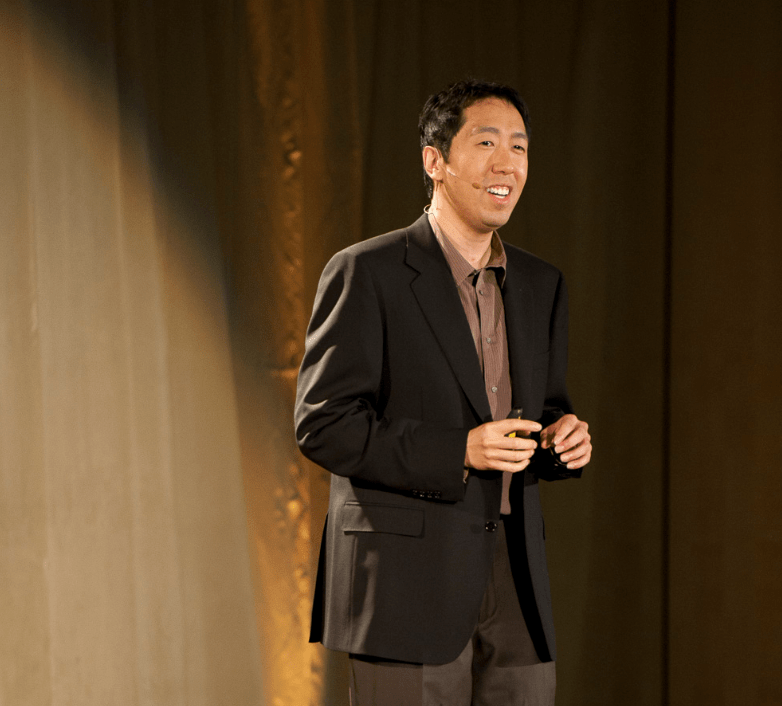“I’ve been interested in this for a long time, much longer than most people would guess or realize,” adjunct computer science professor Andrew Ng told The Daily after hosting a Monday symposium on climate change and artificial intelligence (AI).
As an undergraduate, Ng was co-director of an environmental group at Carnegie Mellon University, where he triple majored in computer science, statistics and economics. Years later, Ng was “very influenced” by “An Inconvenient Truth,” the 2006 documentary on former vice president Al Gore’s efforts to educate the public on climate change. Ng has met with Gore multiple times.
Shortly after becoming a tenured professor in 2009, Ng said, he identified three challenges to approach with AI: education, healthcare and climate change. He has already delivered in two of the three fields, co-founding Coursera — an online learning platform with more than 30 million users — and leading an AI for Healthcare bootcamp at Stanford.
“AI, like electricity 100 years ago, is transforming a lot of sectors,” Ng said. “And AI is a general purpose technology.”
As quickly as AI is expanding, Ng noted, his incoming AI for Climate Change (AICC) bootcamp did not take shape overnight.
“We spent a lot of time trying to figure out if AI can really make a difference in climate change,” Ng said. “I didn’t want the AI community to work on something that I don’t think can make a difference.”
He stressed, however, that there are a multitude of environmental projects to which AI can be applied. Students in his classes have inspired him, he said, with projects on climate issues such as wastewater treatment and energy.
“I remember looking at a [student project] poster and thinking, ‘Wow, this is really cool,’” Ng said. “But there have been so many of those moments over the years.”
Further motivating Ng’s application of AI to climate issues is what he called “a gap between public perception and the scientific reality” of climate change. He sees this gap as one of many that AI can help bridge.
“Machine learning and modeling really can have a very clarifying effect on society in terms of what are the consequences of different actions,” Ng said, adding that he hopes this clarification will “drive society to act.”
“If we actually have concrete proposals,” he said, “It’s easier for society, including the political sphere, to take action.”
Regarding the scale of climate change, Ng said efforts in AI “will need to be global” in order to effectively address the problem. He added, however, that “all massive movements started off with very small groups doing small projects that cause other people to realize that you can make a difference.”
“One of the nice things about climate change as a problem is that it is a problem that I hope can bring the world together,” Ng said. “Today in the narrative of AI there’s a little bit of a sense of competition — that if my nation is ahead in AI, maybe we can beat that other nation. And I’m actually not in support of that.”
He cited energy as one sector where he would like to see more global collaboration in AI research.
“If Singapore has a strong electric grid, maybe they can learn from us, we can learn from them, we can all give people more electricity,” he said. “So I don’t view AI as zero-sum, even though some of the narrative has been competitive rather than cooperative, which I don’t support.”
Ng said he thinks of AI as a “portfolio of a lot of very powerful technologies,” adding that “AI in isolation is not as interesting as AI combined with other disciplines.” To this point, he praised Stanford’s interdisciplinary nature, noting how exciting he finds his ability to walk “5 minutes across campus” and speak with other world-renowned professors.
And he praised the students, too, describing how their diversity of interests lends itself to advancements in AI. Coursework, he said, is one of the best ways for people to sample different opportunities for impact before settling on a focus.
“My advice is jump in and then discover your passion,” Ng said. “I think follow your passion is one of the worst pieces of advice you could give to young people.”
Ng hopes that jumping into his AICC bootcamp will cause a ripple effect across the climate research community. While he acknowledges other global challenges — including civil rights, education and defending democratic institutions — Ng has made it clear that the environmental arena is one in which he is rooted.
This article has been updated to clarify Andrew Ng’s current title at Stanford.
Contact Holden Foreman at hs4man21 ‘at’ stanford.edu.
